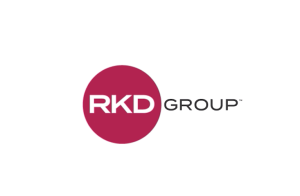Economists surveyed by Bloomberg this past August put the likelihood of a U.S. recession within the next year at almost 50%. The economists also increased their inflation estimates for each quarter of 2023. That’s worrisome news for nonprofit managers whose organizations are being walloped by the rising cost of supplies and for donors who might have to cut their spending.
Data like this brings anxious moments in nonprofit executive meetings and boardrooms. Mounting service demands and tight budgets, which intensified during the pandemic, are not new to the sector. Still, the possibility that things might get tougher really smarts.
The good news is nonprofit leaders can use a variety of strategies to prepare for whatever economic risks lie ahead — recession or not. Here are seven ways to get started.
Do some scenario planning
Sketch out a couple of difficult economic scenarios and gather your team to brainstorm some high-level ideas for how your organization could meet these threats. Scenario planning (https://bit.ly/3wLOGxH) can help teams identify a path forward when threats feel chaotic or overwhelming. Those skills pay dividends even if the specific risks you discussed don’t arise.
Take a hard look at your organization’s finances and priorities
Experts traditionally advise nonprofit leaders facing a possible recession to tighten budgets, pay down debt, and shift more money into reserves. Many nonprofit managers might need to make some of those moves. Don’t just look at your balance sheet. Consider how your organization can best meet its mission in a moment marked by income inequality. Could you invest in your community or your team for the tough times ahead — pay out more money to grantees and shore up staff salaries that right now might be considered less than a living wage?
Consider creating a business continuity plan and crisis communications plan
If your organization doesn’t have these resources, now is a great time to change that. These plans will prove valuable if a sudden economic shock impacts operations and requires you to share news of program cuts with your supporters or the public.
Focus your donor outreach on demonstrating value to existing donors
When donors cut spending, they tend to decrease the number of organizations they support, Nicole Engdahl of the National Park Foundation was recently quoted in a publication as saying. It takes more time, effort, and money to acquire a new donor than to retain an existing one.
Communicate
Don’t wait for your board to ask how your management team will prepare for a potential recession. Tell them now. Give your staff an overview of how the organization is preparing for a possible recession, too. Your communication could allay employees’ fears, bolster trust, and stop rumors.
Focus on your staff
You need a top-notch team to navigate a prolonged economic downturn. Lay the groundwork to strengthen recruiting and retention — even if you can’t hire or do salary increases now. If you haven’t done a compensation review (https://bit.ly/3e80Eez) to ensure your pay is as fair and equitable as possible, start there. Survey your employees to learn what they need from your organization.
Employees from underrepresented groups or early-career workers might need additional employer support, Una Osili of the Indiana University Lilly Family School of Philanthropy said during an August 23 webinar hosted by The NonProfit Times (https://bit.ly/3dZlNaG). One area of common ground: many workers across generations prize flexibility in scheduling and working conditions.
Explore whether you should merge or partner with other organizations
“I think there’s great opportunity for us to look at partnership opportunities in operational efficiencies … That whole model around operational shared services (https://bit.ly/3q0Ua42) is going to grow in time,” said Suzanne McCormick of YMCA of the USA during The NonProfit Times webinar (https://bit.ly/3dZlNaG). Discussions about mergers or partnerships can be thorny, and they’ll meet resistance in some boardrooms. But with income inequality at record highs and demand for nonprofit services spiking, board members should ask tough questions about how best to share resources to meet community needs.
It takes a lot for a team to prepare for a potential downturn. What if your nonprofit’s leadership does all this and recession doesn’t come? If you invest time now to plan, strategize, and have tough conversations, you can better navigate whatever the economy brings. The skills and strategies you build for economic resilience will help your organization face society’s other big challenges, such as racial and social injustice and climate change.
*****
Rachel Sams is a consultant and staff writer at the Nonprofit Risk Management Center in Leesburg, Va. Her email is [email protected]











